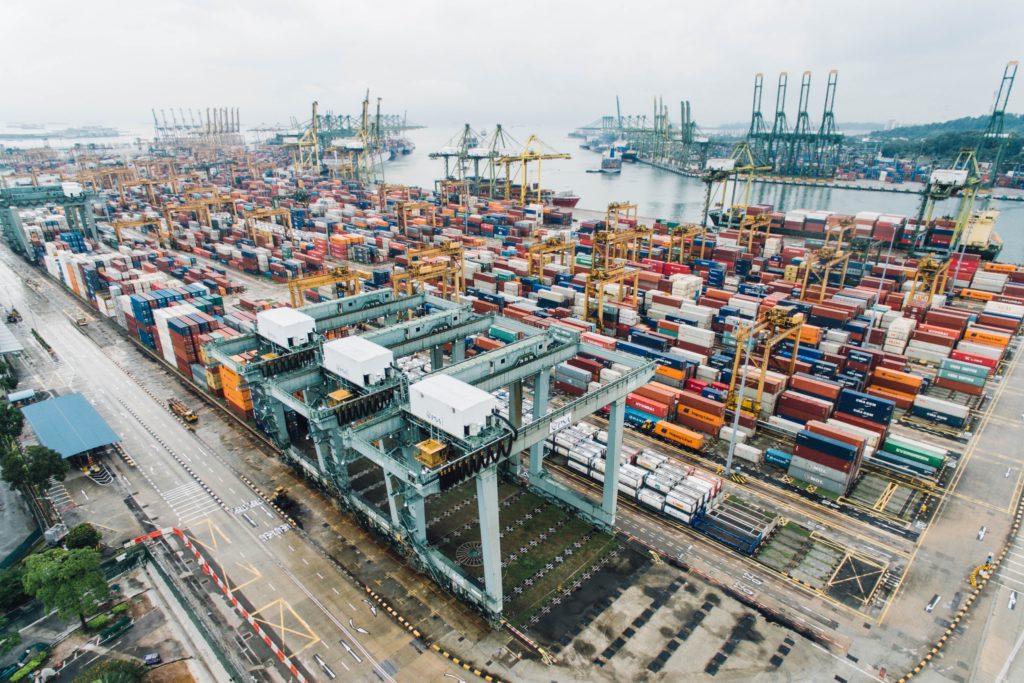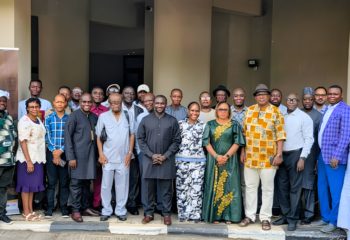
“Fertilizer Watch” designed to give weekly information on COVID-19’s impact on fertilizer trade and country response
The International Fertilizer Development Center (IFDC), the West Africa Fertilizer Association (WAFA) and AfricaFertilizer.org, announce the launch of the West Africa COVID-19 Fertilizer Watch. This weekly Watch will provide statistical and logistical updates to fertilizer value chain stakeholders related to COVID-19’s potential impact on the fertilizer trade in West Africa.
Due to the rapid spread of the novel coronavirus (COVID-19), governments all over the globe have placed restrictions on various forms of travel and trade. In many nations in Africa, where rates of food insecurity and malnutrition remain high, a prolonged restriction on the import and distribution of agricultural inputs could have profound negative impact on food production, which could cause a hunger crisis in addition to a sanitary one.
IFDC, WAFA, AfricaFertilizer.org and other partners are working to ensure that fertilizers and other agricultural inputs are not limited, but rather supported by governments’ decisions, so that they can continue to reach farmers in time for the growing season.
“IFDC considers the most immediate challenge to be a logistical one,” Patrice Annequin, IFDC spokesman and coordinator of the Fertilizer Watch initiative said. “We must all work together to maintain and even increase agricultural production capacity. We can do this by ensuring a free flow of fertilizers and other agro-inputs, from ports to farms, over the next three months, at least.”
The Fertilizer Watch is designed to provide weekly updates to stakeholders using data collected around 10 indicators. These indicators are related to a variety of information such as the spread of COVID-19, measures taken by country governments, and logistical constraints that affect fertilizer flows. The goal is a well-informed and prepared fertilizer supply chain, where actors can use the information to plan accordingly and ensure consistent delivery to farmers.
According to the Watch, fertilizers can and are moving in West Africa, despite the general slowdown of the economies, affecting port, road, and retail operations. COVID-19 cases keep increasing, reaching 4,200 cases in the region as of April 9, 2020, and more constraining health, sanitary and trade measures are expected in the coming weeks to contain the pandemic.
The Fertilizer Watch also provides early estimates of fertilizer stock availability, and indications on the demand by country. According to IFDC findings, up to 50 percent of fertilizer demand is not yet available in West Africa, with landlocked countries and smaller markets being at higher risk.
Currently, the Fertilizer Watch developed with WAFA covers all 15 countries in the Economic Community of West African States (ECOWAS), plus Chad and Mauritania. IFDC and its partners will soon expand to cover more countries and regions in the African continent as data are collected and collaborative efforts set up.
Fertilizer market data are mostly provided by AfricaFertilizer.org, a fertilizer market information and consumption statistics service led by IFDC and the Feed the Future Enhancing Growth through Regional Agricultural Input Systems (EnGRAIS) project, an IFDC-implemented USAID-funded project. WAFA members operating in 12 countries in the West Africa region have been instrumental to compile and verify data and information used to prepare the first weekly release of the West Africa COVID-19 Fertilizer Watch.
“Fertilizer is mainly a logistics game,” Grace Chilande, fertilizer market specialist and coordinator of AfricaFertilizer.org, said. “The availability of reliable and timely data/information is essential in facilitating decision making across the fertilizer value chain.”
For More Information
Download the Fertilizer Watch and the full country reports in English and French by visiting the Fertilizer Watch page.
For additional information, contact:
Patrice Annequin (pannequin@ifdc.org)
Grace Chilande (gchilande@ifdc.org)
Felix Deyegbe (fdeyegbe@ifdc.org)
James Thigpen (jthigpen@ifdc.org)




